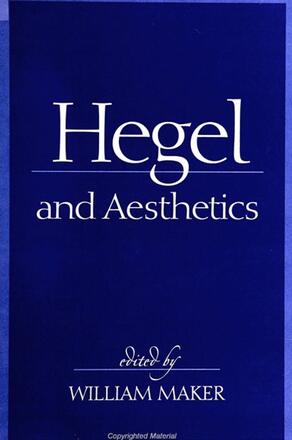
Hegel and Aesthetics
Alternative formats available from:
Leading scholars consider Hegel's philosophy of art and its contemporary significance.
Description
Hegel's Lectures on Aesthetics present a systematic and historical overview of the nature and development of art in light of its meaning and philosophical significance. This book considers Hegel's aesthetics from a variety of perspectives. With a strong and clear introduction by William Maker, the individual essays address Hegel's treatment of music, painting, comedy, and architecture, as well as his earlier writings on art, his relations to Schiller and to Schlegel, his treatment of romanticism, the place of aesthetics in the system, and his controversial claims about the overcoming of art. Several perspectives focus specifically on the contemporary relevance of Hegel's aesthetics in light of developments in art since his time, and especially in connection with modernism, postmodernism, and deconstruction.
Contributors include William Desmond, Brian K. Etter, Andrew G. Fiala, Martin Gammon, Edward Halper, Stephen Houlgate, David Kolb, Stephen C. Law, Judith Norman, Carl Rapp, Jere Surber, and Richard D. Winfield.
William Maker is Chair of the Philosophy and Religion Department at Clemson University. He is the author of Philosophy without Foundations: Rethinking Hegel, also published by SUNY Press, and editor of Hegel on Economics and Freedom.
Reviews
"…challenging and informative … very useful for faculty and graduate students of philosophy and art … William Maker provides a useful introductory essay to the conceptual and systemic foundations of Hegel's philosophy of art. " — CHOICE
"This book fills a glaring void, both in Hegel scholarship and, equally important, in contemporary discussions of aesthetics. The contributors make the case that Hegel's philosophy of art has something important to contribute to contemporary debates and that it has been unjustly ignored. " — Katharina Dulckeit, Butler University
"Hegel and Aesthetics makes a serious contribution to the re-evaluation of Hegel's philosophy of art and its contemporary significance. The essays provide readers unfamiliar with the work of leading figures a good introduction to their work, demonstrate the vitality of Hegel's thought for the work of scholars who may not typically be identified as Hegel scholars, and provide representative examples of current work by younger scholars who clearly see the value of engaging themselves with Hegel's philosophy of art. " — Jon Mark Mikkelsen, Missouri Western State College